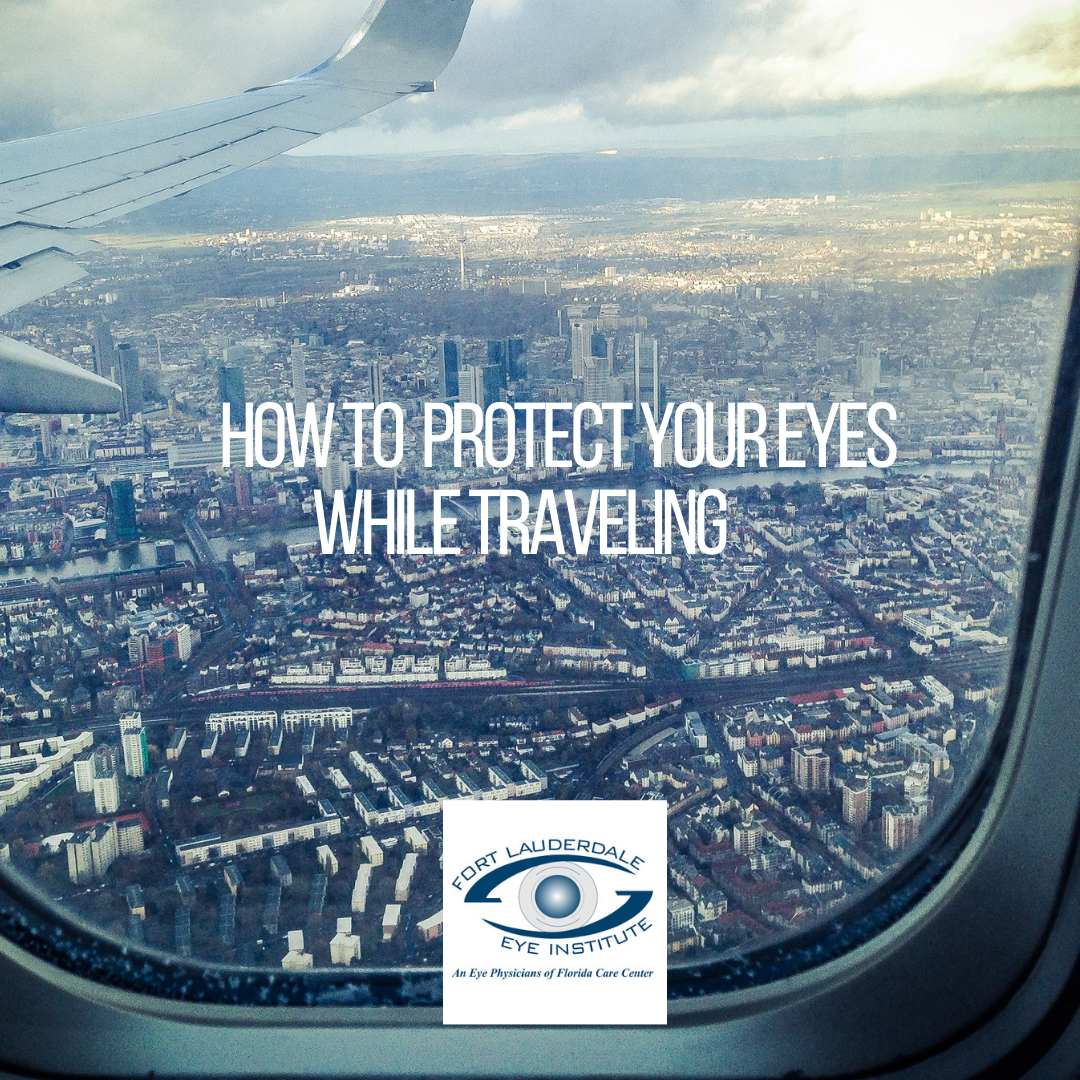When preparing for a family vacation or a business trip, we often forget to fully ready ourselves for these exciting experiences. Upon traveling, you go through different airports, altitude changes, and weather, which all combine to have short and long-term effects on your eyes. The short term effects consist of high altitude retinopathy, changes in corneal thickness, and photokeratitis. Long term effects include pterygium, cataract, and dry eye. As travelers, we are constantly battling with long-haul flights, dry air, and intense sunlight in certain geographic locations.
Protecting your eyes while on-the-go is absolutely essential, and here are some ways to makes that happen:
- Always pack back up glasses and for those wearing contact lenses, bring a travel sized contact solution.
- Remove contact lenses for longer flights and store them properly. However, make sure you wash your hands before removing them. Don’t forget to remove contact lenses when napping on a flight, as sleeping with them can cause irritation.
- Drink plenty of water and use eye drops regularly to hydrate your eyes.
- When entering a different climate, you may be exposed to allergens or debris that you are not used to. Therefore, pack some over the counter allergy medications and don’t rub your eyes once it begins to itch.
- Maintain a well balanced diet and adequate sleep routine.
- Wear wrap around sunglasses with 100% UV ray protection.
- Use swimming goggles in bodies of water.
- Keep skin protected around the eyes with eye cream with SPF.
Remember to have your eyes examined at least once a year. A thorough eye exam can spot serious problems such as diabetes, lupus, high blood pressure, high cholesterol, and eye diseases like glaucoma and macular degeneration. With an annual eye examination, you may catch these problems earlier and avoid serious complications.
Call to make an appointment: 954-741-5555






